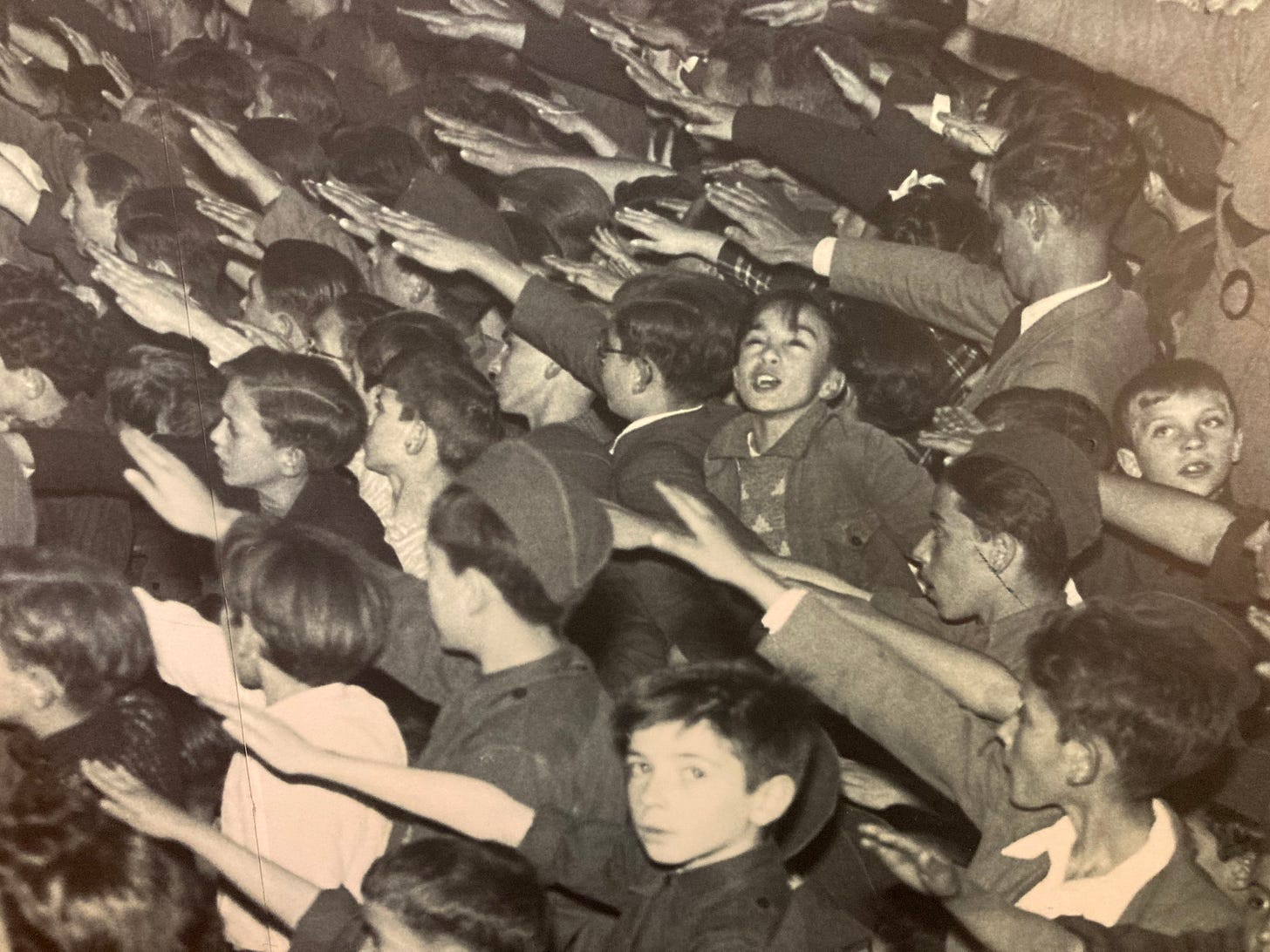
There’s a line on the wall of Portugal’s Museum of Resistance which says:
A people who oppress another people cannot be free.
That was written in 1957, by a group of African students who met to discuss liberating their homelands. They were from Portuguese colonies—Mozambique, Angola, Guinea, and Cape Verde—but looked outward, appealed to Portugal and the world, and had some of their meetings in Paris, to make common cause with French anti-colonial intellectuals.
Then they all got arrested.
Portugal was living under dictatorship then, in what would become the continent’s longest-running military government. With typical saudade, or resigned sadness, the Portuguese are perversely proud that their fascism lasted longer than anybody’s fascism. Salazar took power in a coup in 1926, when Hitler was still driving around Bavaria with socialites. Mussolini arrived on stage earlier (1923) but didn’t make it out of WW2 alive, while Salazar’s New State government outlasted the Beatles. Even Spain’s Franco and Yugoslavia’s Tito ruled for less time.
Part of that longevity may be due to Salazar’s cold-fish personality; he sat at a desk micromanaging his regime, and avoided risky moves. Little Portugal sat out WW2 and joined NATO early, securing American support.
But it was mostly because of violence. Salazar brutally repressed his own people, crushing labor movements, strikers, Communists, and liberals, while censoring the media and torturing thousands of political prisoners.
Like authoritarians everywhere, Salazar made big gestures to conceal his real aims. He launched infrastructure projects, like dams and stadiums, and promoted regressive ideas about tradition, culture, and the glories of empire. Known as “Football, Fado, and Fatima,” this was mix of nostalgic nationalism, Catholic mysticism, and robbing the people blind.
Salazar offered what all dictators, strongmen, and autocrats offer—I will bring you order, efficiency, and prosperity. But he actually handed the economy over to cronies and insiders. By the time his government fell, in 1974, just seven large corporations controlled 75% of the gross national product, the per capita income was the lowest in Europe, and preventable deaths from disease were the highest. Whatever they say, that’s what authoritarians do— strangle their economies and people for the benefit of a few.
Not until anti-fascists (at home) combined with anti-colonialists (abroad) did his system fall. The unwinnable wars in Angola, Mozambique, and Guinea created a bitter class of Portuguese soldiers, tired of throwing themselves on Salazar’s pyre of medieval ideas. A communist underground helped challenge the system of surveillance, secret police, and torture. The professional and clerical classes began to join massive strikes. Finally, with the country ungovernable, junior army officers launched a peaceful coup in 1974, called the Carnation Revolution.
Unlike most military coups, they immediately turned over power to civilian leaders, and negotiated cease fires in Africa. In a great rush, the Portuguese colonies gained independence, and the “motherland” was transformed into a democracy, absorbing a wave of returning white colonists and a new class of Black citizens.
Some of the perils of and parallels to authoritarianism now are obvious. When a politician extols history, myths, and heroes, and promotes “natural” or God-given gender roles, you know what is coming. Today’s bathroom transphobes are yesterday’s Catholic traditionalists demanding women stay home. Salazar arrested people for begging in the streets, just as authoritarians today want to criminalize homelessness.
I’d like to believe a Carnation Revolution of flowers and democracy is possible again—for example, in Russia. Maybe junior military officers are growing tired of impossible orders in Ukraine. Maybe Russian citizens are fed up with arrrests, censorship, puppet elections, and shrinking bank accounts. Maybe civil activists can build a popular movement against a long-running dictator who preaches Christian orthodoxy, imperial glory, and macho patriarchy. But it’s worth noting, from the Portuguese example, that it took almost 50 years of resistance to overturn their dictator.
I learned much of this history by walking through the museum, a former prison in the old Alfama neighborhood of Lisbon. It was a torture center where citizens were fed into a state apparatus of repression that was, from 1957 onward, trained by the CIA.
Everyone who was arrested was photographed as they entered this prison. The pictures are shocking, partly because the people are so well-dressed. They were ordinary Portuguese, going about their jobs, women in neat coats and jewelry, men in neckties and hats. They look surprised—pulled from real life into a shadow land.
An authoritarian movement always needs victims. It swallows those it claims to defend. It must.
We live in a faster age, of digital truths and pop-up revolutions. But looking back warns me that, going forward, the Russians may not find it so quick or easy to rid themselves of Putin, or Putinism.
What should Americans learn?




